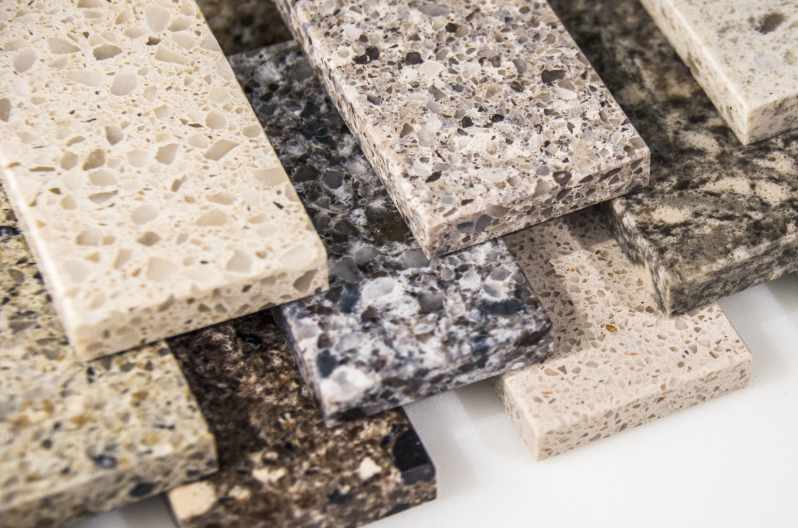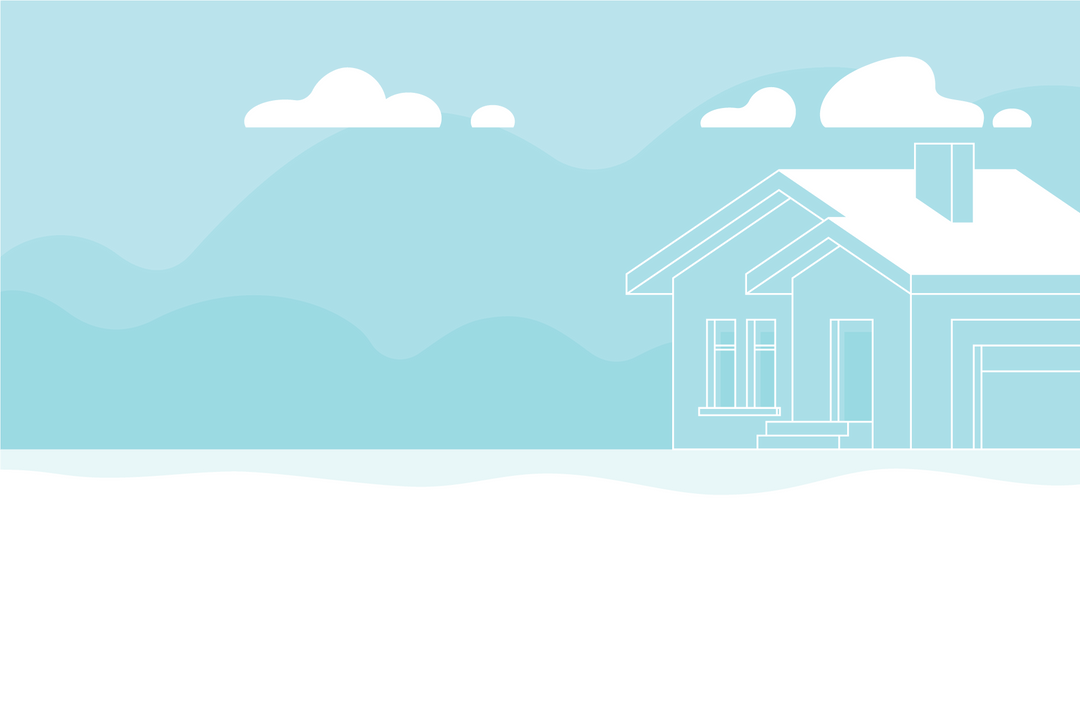
How Much Do Quartz Countertops Cost?
Quartz countertops are a popular choice for homeowners looking for the right balance of style durability, and functionality. However, it’s important to understand the cost considerations that come with installing quartz countertops.
On average, you can expect to pay around $70 to $250 per square foot to install quartz countertops. That national average is $125 per square foot. However, the cost of quartz countertops can vary widely based on several factors.
This includes the quality of the quartz, the thickness of the slab, and any additional features or customization you might choose. Premium brands and exotic colors can be more expensive, while simpler designs and economy brands are usually more affordable.
From what quarts is to understanding cost factors, here is everything you need to know about how much quarts countertops will cost you.
Why Choose Quartz Countertops?
Quartz is a great choice for homeowners looking for durable and attractive bathroom or kitchen countertops. Quartz counters are engineered materials made up of natural quartz, polymer resins, pigments, and even other natural stones.
The resulting surfaces are extremely strong and available in a wide range of colors and patterns. It can even mimic natural stone like marble and granite at more affordable price point.
It is extremely hard, making it highly resistant to scratches, heat, and stains. Quartz also requires little maintenance. It is easy to clean with just soap and water and resists bacteria and mold.
What Are the Benefits of Quartz Countertops
Overall, quartz countertops combine the beauty of natural stone with the practical benefits of engineered materials, making them a popular and sensible choice for kitchens and bathrooms.
Here are some of the key advantages of upgrading to quartz counters:
- Durability: Quartz is extremely dense and hard, making it a great option for counters. It resists scratches, chips, and cracks, ensuring that your countertops look new for a long time.
- Low Maintenance: Quartz is also non-porous, meaning they do not absorb liquids. As a result, they are extremely easy to clean with just soap and water. Plus, they resist stains and bacterial growth, making them a great choice for kitchens and bathrooms.
- Wide Range of Colors and Patterns: Engineered quartz countertops come in a wide variety of colors and patterns. Many styles also mimic the appearance of natural stones like marble or granite.
- Consistency: Since they are man-made, quartz counters offer a more uniform and consistent color and pattern from sheet to sheet.
- Heat and Impact Resistance: Quartz countertops are heat-resistant to a certain extent, although it’s recommended to use trivets or hot pads to protect them from extreme temperatures. They also have good impact resistance, reducing the risk of damage from heavy objects.
- Stain Resistance: The non-porous nature of quartz prevents liquids from seeping into the surface, making it highly resistant to staining from common kitchen substances like wine, coffee, and oils.
Average Cost of Quartz Countertops
The national average cost for quartz countertops is $4,750 for the average kitchen. However, costs can range from as low as $1,500 to $12,000 or more. These are all-in prices and include the quartz material, installation, and other considerations.
Cost Factors For Quartz Counters
When it comes to the total cost of quartz counters, there are a number of factors to consider. The three main cost factors are the style and quality of the quartz, the amount you need, and installation costs. However, there are several other factors that will impact the final price tag.
Style, Quality, and Thickness
Overall, the biggest cost factor for quartz countertops is the style and quality. Entry-level quartz counters start around $35 a square foot while luxury materials cost upwards of $150 or more.
The quality of quartz countertops is based on the mixture of materials used. Lower-quality quartz has a higher percentage of resin and tends to use less expensive pigments to create the pattern.
Whereas higher-quality quartz uses less resin and may even include other materials like ground marble or granite. Higher levels of quartz and other natural materials create a more durable and attractive product. However, they are also more expensive.
The thickness of each slab is also a factor. Half-inch slabs are less expensive but are not as strong as one-inch slabs.
Amount of Material Needed
Another key factor is the amount of material you need. Again, you can expect to pay between $35 and $150 per square foot just for the material. So replacing a 2 x 3-foot section of counter in a bathroom is much less expensive than replacing a 2 x 12-foot section in the kitchen.
Installation Costs
Installation is often a significant portion of the overall cost. You can expect to spend $35 to $100 per hour on quartz counter installation. Some installers charge by square footage, usually $12 to $40 each.
While this is a significant cost, it ensures you get the right fit. Experienced pros will precisely measure, cut, and fit the quartz slabs to your kitchen or bathroom. Compared to DIY installation, this limits the risk of miscuts or ruining quartz slabs.
Installation costs include installing the counters, making cutouts for sinks and faucets, leveling the counters, adding custom edges, and more. Although technically part of the installation process, most companies will charge extra to remove your existing countertops.
Shape of the Counter Edge
Another cost factor is the shape of the counter edge. When you are looking at new counters, you might not think about the edge. But this is another consideration that impacts the overall material costs.
In most cases, basic rounded countertop edges are less expensive than more intricate edges. While there are a number of different edge shapes, here are the most common:
- Eased: The top edge is slightly rounded
- Straight: The top and bottom edges are slightly rounded
- Half-bullnose: The top edge is a quarter-round, while the bottom edge is straight
- Full-bullnose: Both edges are a quarter-round
- Bevel: The top edge is cut at a 45-degree angle
- Ogee: The top edge is cut in an s-shape, while the bottom remains straight
- Dupont: The top edge has a 90-degree cut followed by a quarter-round
Eased and straight cuts start at about $5 per foot, while Ogee and Dupont edges cost as much as $60 per foot. The exact pricing depends on the brand or manufacturer.
For example, they may include an eased edge on their entry-level counters with more detailed edges costing more. Other companies may limit edge styles based on the style and quality of the material.
Some edges are added during manufacturing, while others are custom cut after installation. Custom cuts typically cost more due to the added labor needed during installation.
Quartz Finish
The finish is how the quartz surface looks. While some brands use their own terms, there are usually three main finish styles:
- Honed or matte finish: The surface of the quartz has a matte finish that is great at hiding smudges and streaks. It is a great option for kitchens that get a lot of use.
- Sueded finish: This is a semi-polished finish that often accentuates darker styles. Sueded quartz counters are a good balance between function and style.
- Polished finish: Lustrous and shiny, this offers the polished look of classic marble and granite styles. Considered elegant and classic, it does require more regular cleaning to keep it looking vibrant.
Generally speaking, a honed finish is the least expensive while a polished finish costs the most. However, some quartz styles are only available in certain finishes. As such, the finish can influence the style you choose and lead to higher material costs.
Countertop Removal and Disposal
Most countertop installers charge between $5 and $25 per square foot to remove your existing counters. This includes carefully cutting out the old caulk, removing the backsplash and sink, and lifting out the old countertop.
If you are an experienced DIYer, you might be able to save a little money by removing your existing counters. However, be careful not to damage the cabinet bases. This can dramatically increase installation costs if you need to repair or replace the cabinets.
Backsplash Installation
As with the counters, backsplash installation costs are based on the style, quality, and thickness of the material. A 4-inch backsplash is common, but you can add decorative tile, quartz panels, or other materials for the walls around the counters.
Number of Cutouts
Cutouts include holes for sinks and faucets as well as mitered corners where different sections of the countertop meet. The number of cuts impacts the installation time and therefore the total cost.
Plumbing Changes or Upgrades
Making changes or upgrades to your sink, faucet, or drain can also increase the quartz counter costs. This is most common if you change the style of sink and you need to adjust the drainage pipes. However, moving the location of the sink or other plumbing upgrades can dramatically increase costs.
Additional Costs
Every renovation comes with the potential for additional or even unexpected costs. From wall or cabinet repairs to structural reinforcement, you might have a few additional costs once the installers get started. You should budget for ten percent extra just in case.
If you are ready to install quartz countertops, the best way to get an accurate cost is to talk with a qualified local pro. Remodeling.com is the fast and free way to get multiple quotes from qualified kitchen remodeling and countertop installation pros near you. Enter your zip code now to get started with affordable kitchen countertop upgrades.
